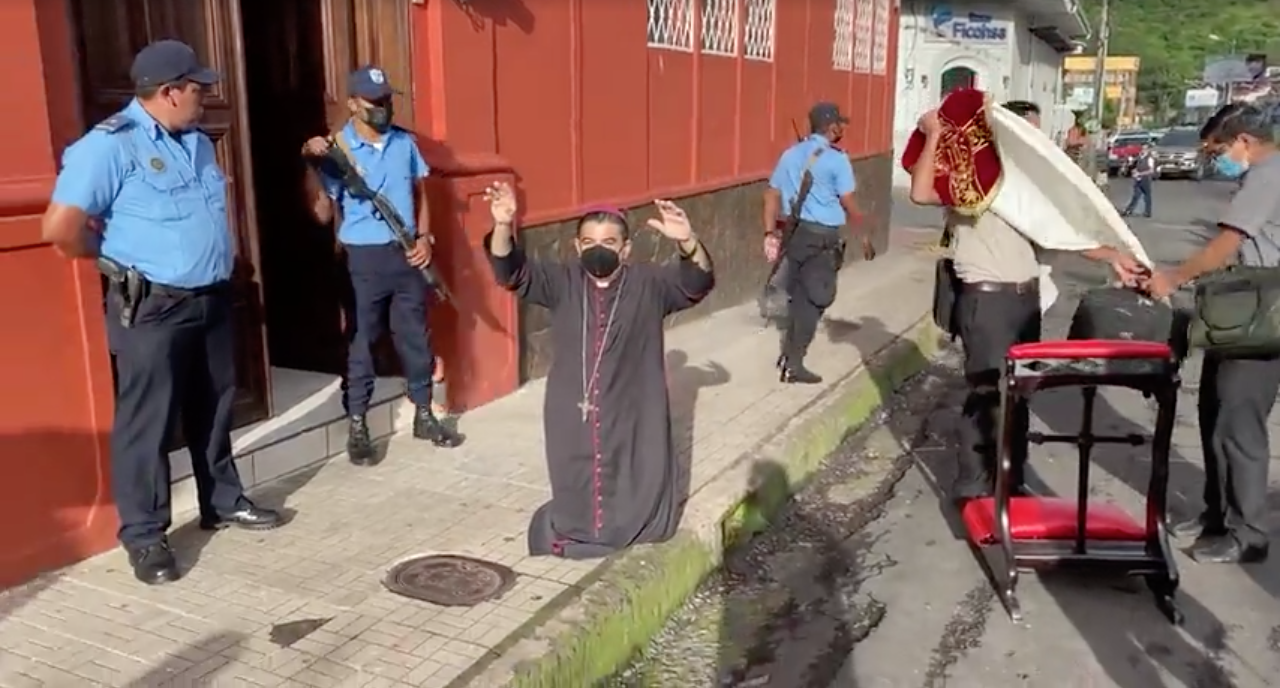First modification:
Although he avoided referring specifically to the arrest of Bishop Rolando Álvarez, Pope Francis expressed his “concern and pain” over the situation in the Central American country, in which the Government and the Catholic Church are in deep confrontation. The pontiff wished that “the bases for a respectful and peaceful coexistence can be found.”
This Sunday, August 21, at the end of his traditional prayers in Saint Peter’s Square, Pope Francis spoke about Nicaragua, where the Government of Daniel Ortega maintains an extensive conflict with the Catholic Church, aggravated by the arrest of the bishop of Matagalpa, Rolando Alvarez.
The pontiff, who had never spoken about the situation until now, said that he follows the Nicaraguan crisis “with closeness, concern and pain” that “affects people and institutions.”
“I would like to express my conviction and my desire that through an open and sincere dialogue the bases for a respectful and peaceful coexistence can be found,” he stressed, without specifying the case of Bishop Álvarez, arrested last Friday.
In addition, he asked that the Lord and the Virgin “inspire in the hearts of all parties such a concrete will.”
The arrest of Álvarez, bishop of the Diocese of Matagalpa, apostolic administrator of the Diocese of Estelí and opponent of the Ortega regime, was the most recent episode of the confrontation between the Nicaraguan government and the religious leadership.
I follow the situation in Nicaragua with concern and pain. I would like to express my conviction and my hope that, through an open and sincere dialogue, the foundations for a respectful and peaceful coexistence can continue to be found. #let’s pray together
— Pope Francis (@Pontifex_es) August 21, 2022
The arrest of Bishop Álvarez deepens the gap between the Government of Nicaragua and the Church
Along with the arrest of the prelate, who was confined in the episcopal curia 15 days ago and is now under house arrest, five priests, two seminarians and a cameraman were also apprehended, who were transferred to a prison in Managua, the police said.
On Friday, Nicaraguan Vice President Rosario Murillo considered Álvarez’s arrest “necessary” as a measure to “preserve peace and harmony.”

The hostile framework was observed and condemned by international organizations such as the United Nations and the Organization of American States.
The Ortega administration has maintained a fierce confrontation with the Church since the repression of protesters in 2018. In this scenario, the congregation sought to mediate between the Government and civilians.
The Church has asked for justice for the 360 inhabitants who died during the riots; while the president himself described them as “terrorists.”
Since then it has forced some of its referents into exile, such as Silvio Báez in 2019; and he unilaterally expelled the apostolic nuncio from the Vatican, Waldemar Sommertag, last March, after he denounced Ortega’s authoritarianism.
Meanwhile, at the beginning of the month, the police advanced on seven Catholic radio stations. Under allegations of an alleged conspiracy, he closed the stations and – in some cases – confiscated the equipment.
With EFE and Reuters















Add Comment